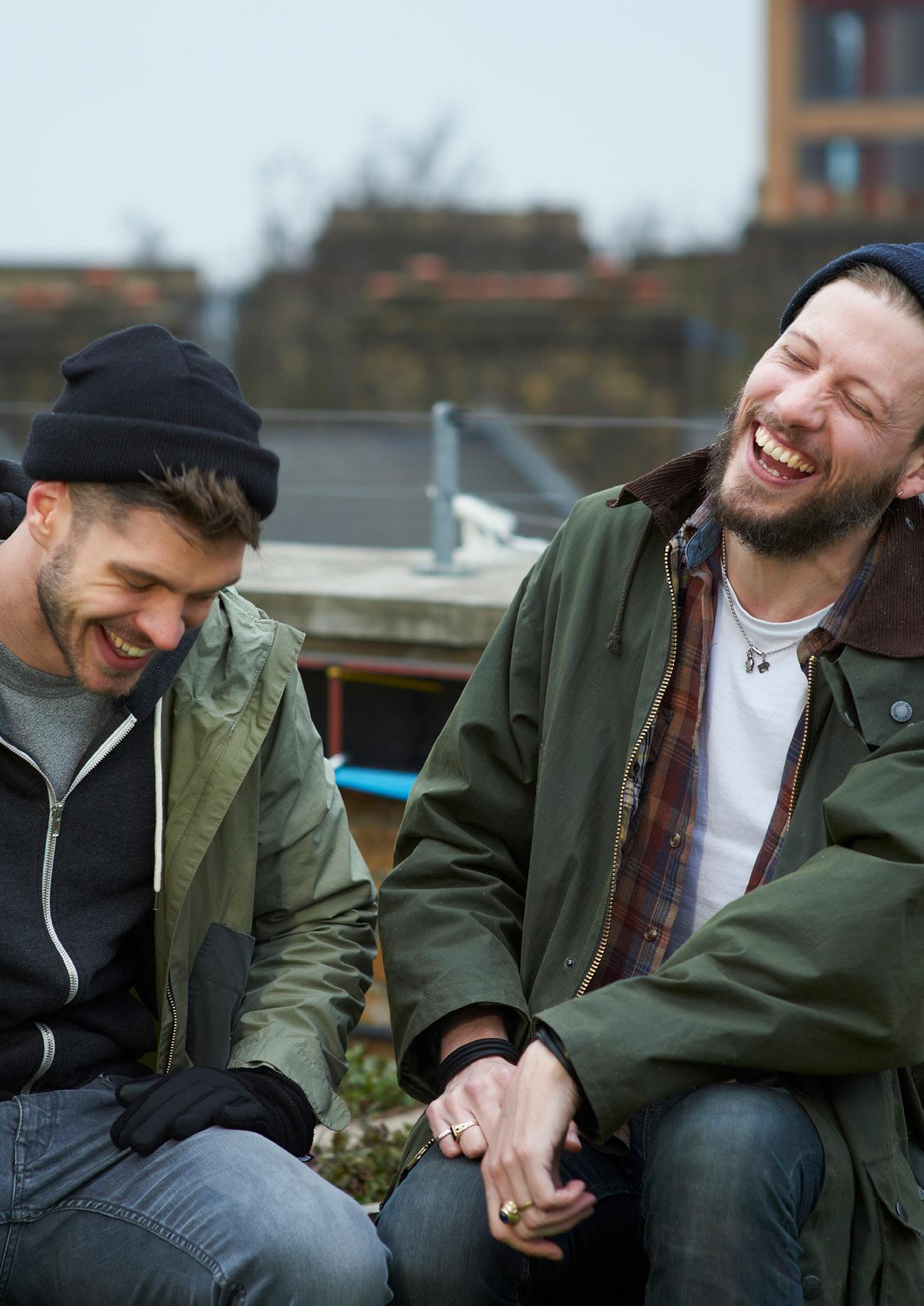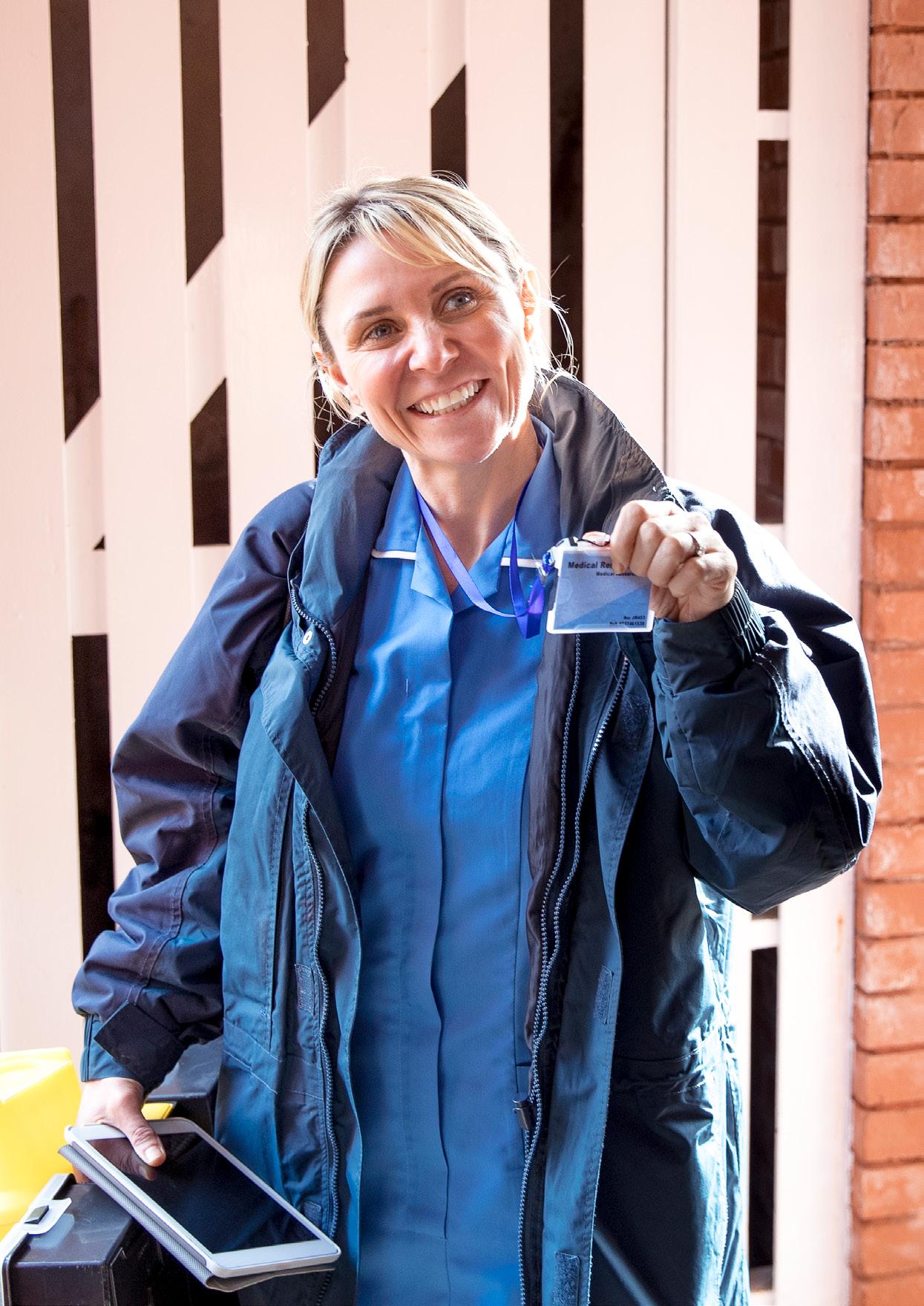
11 minute read
Chapter 4: Opportunities For Change
Chapter 4
Opportunities for Change
The previous chapters demonstrate the unique potential of the early years and the huge opportunity we have to make positive change in every aspect of society and for current and future generations. We all have a role to play in realising this ambition. The post-pandemic context provides both an opportunity and an urgent imperative to act. And recent focus from across the political spectrum provides reasons to be optimistic. Indeed, improvements in the system for early years support are mentioned in the government’s Early Years Healthy Development Review Report, spearheaded by Andrea Leadsom, and published in March 2021.102 This was followed by a commitment to prioritise support for the early years in the May 2021 Queen’s Speech. So what might a future that embraces the extraordinary potential of the early years look like? We believe that there can be a world where a child’s emotional development is on a par with their physical development and where our mental health is seen as being as important as our physical health: a world where there is greater empathy and compassion; where we understand ourselves better; where our relationships are stronger and people do not struggle with addiction, joblessness, homelessness and violence. This world would benefit our whole society and economy, as well as each individual.
The science tells us that the roots of such a society are to be found in early childhood. Getting the early years right is of course not a panacea for all problems — but it is one of the best chances we have to significantly influence future health and wellbeing. It is a golden opportunity to set children on a stable track to adulthood and to lay solid foundations for the next generation of parents. As we consider what we want our future to look like, we have an opportunity to think afresh and to help build the society that we want to live in.
With this wind in our sails and armed with the knowledge from the science, we can make a difference. The Royal Foundation Centre for Early Childhood will focus on researching, campaigning and collaborating to raise awareness of and action on the transformative impact of early childhood. This chapter sets out six practical areas of opportunity where wider society has a role to play in harnessing this opportunity.
Raising awareness of the extraordinary impact of the early years
Currently, awareness of the science presented in this paper is low. Educators, experts, professionals and organisations who understand the early childhood years all have a role to:
Provide accessible and relatable information to primary caregivers and all those raising under-fives to build their knowledge, emotional literacy and skills, so that they can engage in nurturing relationships and provide rich learning environments and experiences. The resources provided by the BBC’s Tiny Happy People are just one example, of many, of materials that are being created to help parents.103 We need to think creatively and dynamically about how to make sure that information and knowledge about early childhood development reach all parents and wider society.
Educate the next generation. Changes in attitudes and behaviour will be achieved more quickly if knowledge is shared with school-age children, who in time will be the next generation of parents. Information about healthy brain development in the early years and the science that lies behind our understanding should be included in the school curriculum.
Improve understanding of why the early years matter, including helping to translate the science, and explaining what people can do that makes a difference and what works to deliver better outcomes.
Change the way we think about early childhood to highlight the importance of the emotional development of infants and the wellbeing of caregivers. Attention should be given to good emotional development as well as to good physical development. We need a more holistic approach that goes beyond a focus on childbirth, nutrition, immunisation, the ‘milestones’ of physical development and measures of academic progress.
Building a mentally healthier and more nurturing society
Healthy development, from pregnancy onwards, requires nurturing relationships, environments and experiences. Everybody has a role to play, and collectively we have the power to:
Give greater priority to mental wellbeing across society, which in turn will better support parents and children, including by building greater emotional literacy to support social and emotional development in the early years.
Value the role of parents, carers and families, creating space for their voices to be heard. Listening is key to understanding needs and challenges and to identifying better ways to support healthy childhood development.
Invest in the mental health, wellbeing and emotional literacy of parents and caregivers to help build virtuous cycles of improved wellbeing and positive stable relationships across the lifespan. This includes ensuring that all health and social care professionals in contact with parents during pregnancy and in the early years have a sufficient understanding of parental mental health issues and of healthy parent-infant interactions and intergenerational trauma.
Build the capacity and capability of parents and caregivers to foster healthy relationships between adults and children, starting with strong bonds of attachment. This will support the foundations for mental wellbeing and resilience for the next generation. However, the feelings of judgement and isolation experienced by many parents point to a wider need to normalise and destigmatise the accessing of parenting support and programmes, in the same way that we have seen a destigmatisation of talking about mental health. Address poverty. Parents can only engage with a system of support if they have the capacity to do so. Urgent steps are required to ensure that families with the youngest children are not struggling to survive without adequate nutrition, nappies and clothes and affordable and safe housing, and to ensure that the most vulnerable parents get the right specialist help in relation to mental health.
Create safe, healthy and nurturing environments and experiences, including rich home learning environments and high-quality early years education and childcare, and provide easy access to nature and outdoor space.
Creating communities of support
We can leverage human capital and connection so that families feel supported in all contexts. Other parents, the ecosystem of organisations that exist to support families in the early years and wider society all have a critical role to play. Non-parents have as important a role as parents in making communities family-friendly. Collectively we can:
Encourage and scale up parent-to-parent help. All parents and carers need support, with family and friends usually being the first port of call. There are wonderful examples of peer-support initiatives — from informal online groups to organised volunteer services — that help meet practical and emotional needs. In some places there are parent champions who are an invaluable and trusted source of information and who build bridges to local services.
Harness communities’ strengths in support of families. The pandemic, for all the challenges it has created, has served as a reminder of the power of community — from the explosion of mutual aid across the country to the more than a million people who signed up to volunteer with the NHS. Local charities and services have also worked together in new ways, gaining better understandings of families’ needs. Many families say that they feel better supported by their communities than in the past. Communities can build on this moment to:
Create welcoming, non-judgemental environments that support parental wellbeing, including outdoor and green spaces;
Encourage and support help-seeking, so that it is seen as the norm for parents to look for help and to receive it;
Use their voice to ensure that early childhood is prioritised. Champion the value of high-quality, evidencebased parenting programmes and support. Parenting programmes have demonstrated the potential to prevent a range of social, emotional and behavioural problems. Evaluations have demonstrated that combined universal and targeted approaches reduce the prevalence of child and adult mental ill health and rates of child abuse and neglect.
In the workplace, encourage and facilitate a more family-friendly society. Our workplaces have huge power in shaping a culture that supports the early years, whether in terms of retaining staff or long-term investment in the development of a future productive workforce. In the US, 3,000 business leaders have signed up to ReadyNation, a movement that seeks to ‘strengthen business through smart investments in children and youth’.104 Many of those who are engaged have a wider perspective on the importance of the early years and are supporting early childhood programmes both within and outside of their own businesses. We need employers in the UK to do the same. Employers can support families in the early years by coming together to share ideas, experience and knowledge about supporting employees as they become parents, and for example by:
Supplementing statutory provision for paid leave, ensuring that all parents and carers have sufficient and equal paid maternity and paternity leave;
Providing flexibility in working hours to meet parents’ needs, and ensuring that they always have the confidence to ask for such arrangements. The pandemic has demonstrated that flexible working is possible, without damaging business, in many more jobs than we previously considered.

Strengthening the early years workforce
There are thousands of dedicated and hardworking individuals who are committed to supporting families in the early years, from pregnancy onwards. Their work is not always properly recognised or valued but, whether as midwives, health visitors, providers of early help and specialist support or early education and childcare workers, they make a huge difference. For example, it has been shown repeatedly that early childhood education and childcare can have a positive effect on children’s developmental outcomes when the quality of services is high.105 Skilled and well-supported practitioners are key to the quality of services and can make a proven difference, particularly for children from low-income and at-risk families. We need to:
Recognise the importance of the role played by the early years workforce and reflect this in the quality of training, in support for workers’ emotional wellbeing and in the value we attach to their roles. Universal services and professionals (midwives and health visitors) and primary care services (GPs) must have the support and capacity to enable them to meet need and achieve a shift to both physical and mental health care.
Ensure that those who work with children and parents have good and easy access to the latest scientific research and support to translate the science into practice. Practitioner training needs to cover all aspects of healthy child development, including brain development and mental health guidance. Encourage and enable practitioners to pull together, harnessing a sense of joint purpose and common cause in the early years sector. In some parts of the sector there is increasing understanding of the benefits of holistic training on all aspects of healthy childhood development. The Royal College of Midwives, for example, has published a guide on Parental Emotional Wellbeing and Infant Development, providing ‘focussed, clinically relevant and evidence based information and advice on the inextricably linked issues of parental mental health, the parent-baby relationship, and infant development’.106
Putting the data to work for the early years
We can support research and put data more effectively to work for the early years. As already noted, data on babies and infants are both patchy and lacking in consolidation. At the same time, there are gaps in research — and where research does exist, it isn’t consistently used to inform practice. We need to:
Gather data routinely and consistently from birth onwards to allow for early identification of emotional and physical developmental needs and the tracking of outcomes. Robust datasets will also support research and so increase our knowledge of what makes a difference.
Harness knowledge from the private sector to find safe ways to share data between organisations. Data are vital to our understanding of need and outcomes, and rigorous collection of data and joining up of datasets (presently held in separate ‘silos’) are essential to forming a complete picture of the child.
Invest in research of all kinds to build our body of knowledge, including psychological, behavioural, social and implementation science, longitudinal studies and economic evaluations. A new study by the Centre for Longitudinal Studies (CLS), launched in May 2021 and tracking 8,000 families over their child’s first five years, is a great example of the kind of work we need to see more of. 107
Consistently use research and evidence to educate practice, and help commissioners of services and professionals to make the space to hear and effectively use that evidence.
Supporting long-term and intergenerational change
We can strengthen the foundations of support for all through making a long-term commitment to building and sustaining an effective system. This will require:
A national framework providing a common agenda to drive holistic and preventative early childhood support. We need continuity of care and a minimum level of support for the mental and physical wellbeing of all children and parents from pregnancy onwards. This should reflect what all parents need and value, and what evidence has shown will make a difference.
Deeper collaborative working at the local level. A new national framework will create more opportunities to develop shared priorities and deliver collective impact through the public, private and voluntary sectors working together more effectively. But collaboration also needs to be driven and owned locally by those working with families. There are some great examples of energy and effort being put into this way of thinking — for example, Early Learning Communities and the Team Around the Setting model. Children’s centres, family hubs and digital support all have a role to play. It will be essential to expand these kinds of approach and to harness new partnerships formulated in lockdown in order to provide families with more holistic support. A measurable child outcomes framework that can be used throughout the early years and will help us to understand how children are developing at all ages and across all domains of development.






